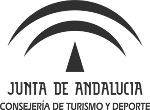«Core stability». Concept and contributions to training and injury prevention
Abstract
In this work we present a scientific literature review on core stability with the aim of clarifying the meaning of this concept and its relation with sport performance and injury. The results of this review show that the use of the term core stability is ambiguous, as there is a great terminological confusion in both scientific literature and professional fields. Several biomechanical and epidemiological studies suggest that the neuromuscular control deficit of core stability is related to low back pain and lower limb injuries. Nevertheless, despite the fact that core stability exercises are key elements in sport training programs, there is not enough evidence to establish a clear relation between the practice of these exercises and the improvement in sport performance.


